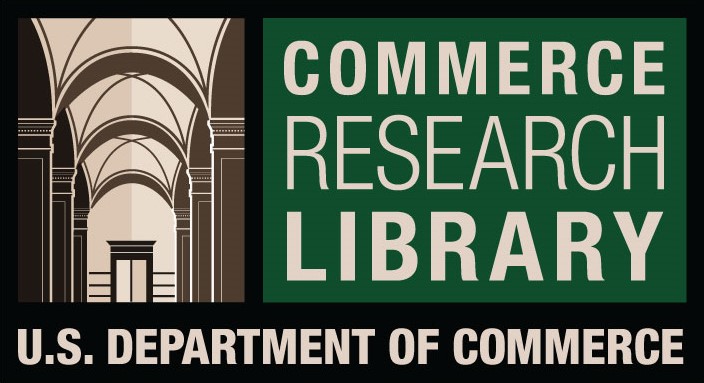Investigating PCK Among Malaysia Preschool Teachers in Early Mathematics
DOI:
https://doi.org/10.61841/xrha6e72Keywords:
Student’s Cognitive Knowledge (SCK), , Pedagogical Knowledge (PK),, - Preschool Teachers,, Early Mathematics, Best Practice.Abstract
--- This paper explored the Pedagogical Content Knowledge (PCK) of preschool teachers for preparing pupils to understand mathematical concepts. The main aspect being explored is student’s cognitive knowledge (SCK) and pedagogical knowledge (PK) by investigating, understanding and transforming classroom teaching practice in preschools. The design of this study was a case study with three preschool teachers who were selected as the research participants. Data were collected over five months in the form of interviews, teaching observation and document analysis. All of the interviews were in audio and video format while a checklist was used to record teaching observations. Analysis of the content of the documents produced was based on the teachers’ lesson plans and results were compared with previous research. Validity and reliability were established based on the Cohen Kappa Index Scale. This study found that the research participants possessed knowledge and understanding of student’s cognitive knowledge (PCK) in early mathematics. Furthermore, the research participants clearly demonstrated a good level of knowledge and understanding of pedagogical knowledge (PK) for early mathematics. It can be concluded that both PCK and PK are, therefore, important for helping preschool teachers to plan and conduct early mathematics activities that are relevant to their pupils’ stage of development and for enabling them to choose the best method of teaching practice. Selecting the best teaching practice in early mathematics is, of course, vital for making students' learning activities fun and meaningful for preschoolers.
Downloads
References
[1] Abdul Razak, I., & Nor Asmah, S. (2010). Pendekatan pengajaran yang digunakan oleh guru sekolah menengah di daerah Johor Bahru dalam pengajaran dan pembelajaran matematik. Johor: Universiti Teknologi Malaysia.
[2] Ahmad, Y. K., & Ab. Halim, T. (2010). Pengetahuan Pedagogikal Kandungan (PPK) Pengajaran Akidah: Kajian Kes Guru Cemerlang Pendidikan Islam. Journal of Islamic and Arabic Education, 2(2), 13-30.
[3] Aintley, J., & Luntley, M. (2007). Towards an articulation of expert classroom practice. Teaching and Teacher Education, 23, 1127-1138.
[4] Arbaa, R., Jamil, H., & Abd Razak, N. (2010). Hubungan guru-pelajar dan kaitannya dengan komitmen belajar pelajar: Adakah guru berkualiti menghasilkan perbezaan? Jurnal Pendidikan Malaysia, 35(2), 61–69.
[5] Coyne, I. T. (1997). Sampling in qualitative research. Purposeful and theoretical sampling: Merging or clear boundaries? Journal of Advanced Nursing, 26(3), 623-630.
[6] Cresswell, J. W. (2014). Research Design: Qualitative and Quantitative and Mixed Methods Approaches. California: Sage Publications.
[7] De Wever, B., Schellens T., Valcke, M., & Van Keer H. (2006). Content analysis schemes to analyze transcripts of online asynchronous discussion groups: A review. Computers and Education, 46, 6-28.
[8] Fatimah, S. (2009). Strategi bagi membantu murid sekolah rendah menguasai matematik. Jurnal Pendidikan Matematik, 9(2), 56-65.
[9] Fraenkel, J. R., Wallen, N. E., & Hyun, H. H. (2012). How to Design and Evaluate Research in Education. New York: McGraw-Hill.
[10] Grossman, P. (1990). The Making of a Teacher: Teacher Knowledge and Teacher Education. New York: Teachers College Press.
[11] Guest, G., Bunce, A., & Johnson, L. (2006). How many interviews are enough? An experiment with data saturation and variability. Field Methods, 18(1), 59-82.
[12] Hattie, J. (2009). Visible Learning: A Synthesis of Over 800 Meta-Analyses Relating to Achievement. England: Routledge.
[13] J. Chee, M. N. Mariani, A. J. Othman, & M. R. Nor Mashitah. (2017). Exploring the issue of content, pedagogical and technological knowledge among preschool teachers. International Journal of Advanced and Applied Sciences, 4(3), 130-136.
[14] Jain, C., Mariani, M. N., Abdul Jalil, O., & Nor Mashitah, M. R. (2017). Understanding of content knowledge, pedagogical knowledge among preschool teacher and application developmentally appropriate practices in teaching. International Journal of Advanced and Applied Sciences, 4(3), 148-153.
[15] K. A. Jasmi, & A. B. Halim Tamuri. (2007). Pendidikan Islam: Kaedah pengajaran & Pembelajaran (Islamic Education: Teaching and Learning Methods). Johor: Universiti Teknologi Malaysia Press.
[16] Khakbaz, A. (2014). Conceptualization of pedagogical content knowledge (PCK) for teaching mathematics in university level. International Conference on Education in Mathematics, Science & Technology, pp. 523-527.
[17] Koerber, A., & McMichael, L. (2008). Qualitative sampling methods a primer for technical communicators. Journal of Business and Technical Communication, 22(4), 454-473.
[18] Lee, J. (2010). Exploring kindergarten teachers’ pedagogical content knowledge of mathematics. International Journal of Early Childhood, 42, 27-41.
[19] MacNaughton, G. (2005). Doing Foucault in Early Childhood Studies: Applying Poststructural Ideas. New York: Routledge.
[20] Major, C. H., & Palmer, B. (2002). Faculty knowledge of influences on student learning. Peabody Journal of Education, 77(3), 138-162.
[21] Masniza, A. (2011). Kemahiran metakognitif dan keupayaan penyelesaian masalah matematik bukan rutin dalam kalangan pelajar di sebuah sekolah berasrama penuh. Master thesis, Selangor: Universiti Kebangsaan Malaysia.
[22] McCaffrey, D., Lockwood, J. R., Koretz, D., Louis, T. A., & Hamilton, L. (2004). Models for value-added modeling of teacher effects. Journal of Educational and Behavioral Statistics, 29(1), 67-101.
[23] Mccray, J. S. (2008). Pedagogical content knowledge for preschool mathematics: Relationships to teaching practices and child outcomes. PhD thesis, Illinois: Loyola University Chicago.
[24] Merriam. S. B., & Tisdell, E. J. (2015). Qualitative Research. A Guide to Design and Implementation. California: Jossey-Bass.
[25] Ministry of Education Malaysia. (2012). School Inspectorate and Quality Assurance (SIQA) of National Preschool Teaching Report.
[26] Ministry of Education Malaysia. (2013). School Inspectorate and Quality Assurance (SIQA) of National Preschool Teaching Report.
[27] Ministry of Education Malaysia. (2016). National Standard Preschool Curriculum. Department of Curriculum Developing.
[28] Mohd Fadzli, A., & Fuziyah, M. (2011). Pembinaan Perisian Pembelajaran Berpandukan Komputer (PBK) Jenis Tutorial Berasaskan Teori Kosntruktivisme Matematik Tingkatan Satu-“Fraction”. Journal of Science & Mathematics Educational, 2, 51-66.
[29] Muhr, T. (1997). ATLAS.ti5: The Knowledge Workbench. Berlin: Scientific Software Development. for PC and MAC.
[30] NAEYC. (2008). History of NAEYC. Online at www.naeyc.org/about/history.asp.
[31] Nor, M. M. (2006). Realiti Trend dan Isu dalam Pendidikan awal kanak-kanak. Masalah Pendidikan, 29, 81–90.
[32] Nurul Amirah, M. R., & Zaidatun, T. (2008). Reka bentuk sistem pembelajaran konsep nombor berasaskan pendekatan permainan yang menerapkan teori perkembangan kognitif kanak-kanak. Seminar Penyelidikan Pendidikan Pascasiswazah, pp. 106-121.
[33] O’Reilly, M., & Parker, N. (2012). Unsatisfactory saturation: A critical exploration of the notion of saturated sample sizes in qualitative research. Qualitative Research Journal, 13(2), 190-197.
[34] Othman, L. (2012). Penyelidikan Kualitatif, Pengenalan Kepada Teori Dan Metod. Perak: Universiti Pendidikan Sultan Idris Press.
[35] Park, S. H., & Oliver, J. S. (2008). Revisiting the conceptualization of pedagogical content knowledge (PCK): PCK as a conceptual tool to understand teachers as professionals. Research Science Education, 38, 261-284.
[36] Peter, O. I., Abiodun, A. P. & Jonathan, O. O. (2010). Effect of constructivism instructional approach on teaching practical skills to mechanical related trade students in western Nigeria technical colleges. International NGO Journals, 5(3), 59-64
[37] Reilly, R. C., Lilly, F., Bramwell, G., & Kronish, N. (2011). A synthesis of research concerning creative teachers in a Canadian context. Teaching and Teacher Education, 27(3), 533–542.
[38] Sahabuddin, H., & Rohizani, Y. (2003). Psikologi pembelajaran dan personaliti. Pahang: PTS Publications.
[39] Shulman, L. S. (1986). Those who understand: Knowledge growth in teaching. Educational Researcher, 15(2), 4- 14.
[40] Shulman, L. S. (1987). Knowledge and teaching: Foundations of the new reform. Harvard Educational Review, 57(1), 1-23.
[41] Smit, B. (2002). Atlas.ti for qualitative data analysis. Perspectives in Education, 20(3), 65-75.
[42] Thorndike, E. L. (1911). Animal Intelligence. New York: Macmillan. Reprinted Bristol: Thoemmes.
[43] Van der Sandt, S. (2007). Research framework on mathematics teacher behaviour: Koehler and grouws’ framework revisited. Eurasia Journal of Mathematics, Science & Technology Education, 3(4), 343-350.
[44] Vighnarajah, W. S. L., & Kamariah, A. B. (2008). The shift in the role of teachers in the learning process. European Journal of Social Sciences, 7(2), 33-41.
[45] Walker, J. L. (2012). The use of saturation in qualitative research. Canadian Journal of Cardiovascular Nursing, 22(2), 37-46.
[46] Wu, S. C., & Lin, F. L. (2016). Inquiry-based mathematics curriculum design for young children-teaching experiment and reflection. Eurasia Journal of Mathematics, Science & Technology Education, 12(4), 843-860.
[47] Zainuddin, Z. A., & Suardi, A. (2010). Keberkesanan kaedah konstruktivisme dalam pengajaran dan pembelajaran matematik. keberkesanan kaedah konstruktivisme dalam pengajaran dan pembelajaran matematik. Jurnal Pendidikan, 2010, 1-7.
[48] Zamri, M., & Noriah, M. I. (2003). Analisis Cohen Kappa dalam penyelidikan bahasa: Satu pengalaman. Seminar Penyelidikan Guru Peringkat Kebangsaan, pp. 1-7.
Downloads
Published
Issue
Section
License

This work is licensed under a Creative Commons Attribution 4.0 International License.
You are free to:
- Share — copy and redistribute the material in any medium or format for any purpose, even commercially.
- Adapt — remix, transform, and build upon the material for any purpose, even commercially.
- The licensor cannot revoke these freedoms as long as you follow the license terms.
Under the following terms:
- Attribution — You must give appropriate credit , provide a link to the license, and indicate if changes were made . You may do so in any reasonable manner, but not in any way that suggests the licensor endorses you or your use.
- No additional restrictions — You may not apply legal terms or technological measures that legally restrict others from doing anything the license permits.
Notices:
You do not have to comply with the license for elements of the material in the public domain or where your use is permitted by an applicable exception or limitation .
No warranties are given. The license may not give you all of the permissions necessary for your intended use. For example, other rights such as publicity, privacy, or moral rights may limit how you use the material.









